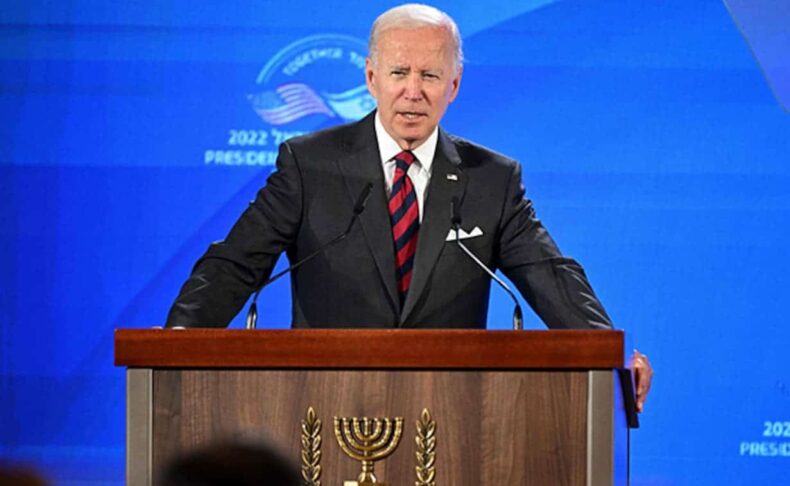Joe Biden, President of the US (POTUS) reiterated his commitment to reform the UN Security Council. Biden believed the time had arrived for the institution to become more inclusive so that council could better respond to the needs of today’s world.
POTUS supports the entry of G4 countries like Germany, India, Japan, and India as permanent members of a reformed UNSC, a White House official said.
The US supports a reformed Security Council that is representative, effective and relevant. Nevertheless, the US offers qualified support for building a consensus for the expansion of the UNSC from both permanent and non-permanent members.
In another criterion, the US does not support an expansion of the veto powers, which is exercised by the P5 countries – China, Russia, France, the UK and the US. These countries can veto any resolution.
Before Joe Biden, other POTUS lend their support for India’s entry into UNSC
Earlier in 2010, the then US President Barack Obama and in the year 2017 former US President Donald Trump administrations had supported India as the permanent member of the UNSC.
In recent times, one of the permanent members France also supported India’s inclusion for a permanent seat in the UNSC.
The Indian government has granted the highest priority to acquire permanent membership for India in the expanded UNSC. The prime responsibility of the permanent member of the UNSC is to the maintenance of international peace and security.

The government has taken many initiatives aimed at building world support for India’s contention in UNSC. The matters are consistently taken up during the bilateral and multilateral meetings at all levels, External ministry officials said
India has been working consistently to take up the issue of reform of the UNSC during the bilateral and multilateral meetings at all levels, External ministry officials said
Negotiations for UNSC reforms
An Inter-Governmental Negotiation (IGN) framework of the UNGA has been a platform for countries that are propelled for text-based negotiations to start on an immediate basis. IGN working on reforms, including categories of membership, and issues relating to veto power and regional representation.
Chinese support for UNSC reforms should be in such a way that it increases the authority and potency of the council. It also increases the representation and voice of developing countries so that small and medium-sized countries have a greater opportunity to participate in the decision-making process.
India has been working alongside the G4 countries and the L.69 countries ( A group of developing countries from regions of Latin America, the Caribbean, Africa, Asia, and the Pacific) for acquiring membership in the security council.
Over the years, demand has increased for representation in the security council to reflect the contemporary world reality. Apart from G4 countries, South Africa is in prime contention for permanent membership of the council.
India’s efforts for inclusion in UNSC
In 1992, G4 countries India, Brazil, Germany, and Japan had put their opinions for demanding inclusion as permanent members. In response, the regional disagreements by the rival group Uniting for Consensus like Italy, Pakistan, Argentina, Italy and South Korea lowered the G4 reforms.

In 2005, Kofi Annan’s planned to expand UNSC to 24 members under the General Assemble Taskforce on UNSC reform, but the initiative fail to come into force.
The major criticism of the present UNSC permanent membership is that the members of P5 are from two regions I.e. from Europe and North America. There is no representation at all from Africa, Latin America, Australia and other regions) and underrepresented regions like Asia.
India is the founding member of the UN and has so far been elected for eight terms for a two-year non-permanent member seat.
As on June 2022, India has almost twice the number of peacekeepers deployed on the ground as the P5 countries combined. Second-ranked India deployed 5734 males and 98 females overall 5832 peacekeepers. P5 countries’ contributions are China 2,240, France 847, UK 534, US 34 and Russian 80 peacekeepers deployed on the ground.
India acquired the status of Nuclear Weapons State in May 1998 which also makes India a natural claimant for the permanent member status, because all P5 countries are Nuclear Weapon States.
India has adopted a multi-layered strategy approach to assume the permanent seat. The strategy of revisionist integration means maximising support in the UN General assembly and minimising the resistance in the UN Security Council.

China is the only permanent country in the UNSC using its veto power to block India’s efforts to become a permanent seat of the UNSC.
India has still not signed the Nuclear Non-proliferation Treaty and also refused to sign the comprehensive nuclear test ban treaty in 1996. These refusals allow India to take a back step in attaining permanent membership.
Most of the UNSC Permanent members have good scores on Human Development Index, when comes to India, performance is not up to the mark and considerable factor for non-selection to UNSC.
India still exports weaponry from US and Russia for its military requirements, which arises doubts about the abilities to operate other than into-pacific regions.
India’s policy of silence on most international security issues like human rights violations in Syria, and nuclear proliferation in Iran and North Korea, are primary concerns for the UNSC permanent members.
Entry of India into UNSC permanent seats will ensure participation of both developed and developing countries.
Currently, India is a non-member of the UNSC and president for August month in 2021 and 2022 period.













